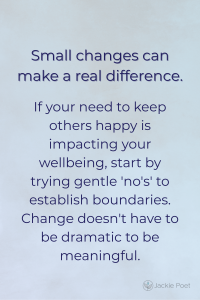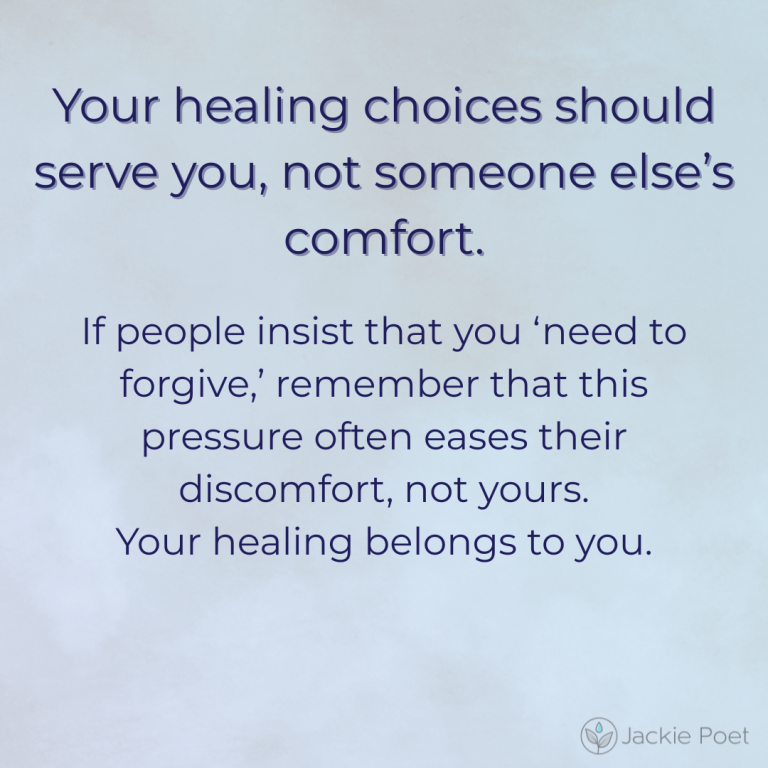If your need to keep others happy is having a negative impact on your wellbeing, you can begin to change that pattern.
There are steps you can try to lessen its impact. This doesn’t mean dramatic overnight changes. Small, consistent shifts can make a real difference.
Try gentle no’s. Instead of always agreeing to every request, choose where to give your time. Instead of staying overnight with relatives, decide to spend just an evening. Meet friends you feel ambivalent toward for coffee rather than dinner. Contribute toward a project, rather than being responsible for the whole thing.
Begin saying no with conviction and try to avoid apologizing too much. Set limits on how much time you’re prepared to give to other people.
Establish boundaries that won’t be crossed. Maybe Saturday night is your time and your time only. Boundaries like these are not selfish; they are necessary for a healthy life.
Over time, you’ll be much happier when you live life according to your own goals and values. Growing up in a home where love and approval were unpredictable, choice may feel unfamiliar. Few children from dysfunctional families are encouraged to make healthy choices and rewarded for choosing well. You may have learned early that pleasing others was the safest path. Reclaiming your own choices takes practice, and often a skilled counselor or psychotherapist will prove invaluable.
Change is possible. Every small boundary is a sign of progress. Each one creates space for relationships built on mutual respect and for a life guided by your own values. It takes time, effort, and self-compassion, but you deserve relationships that honor your needs as well as others’.
Continue your healing journey with Toxic by Jackie Poet a compassionate guide to understanding and overcoming the lasting effects of childhood trauma.







